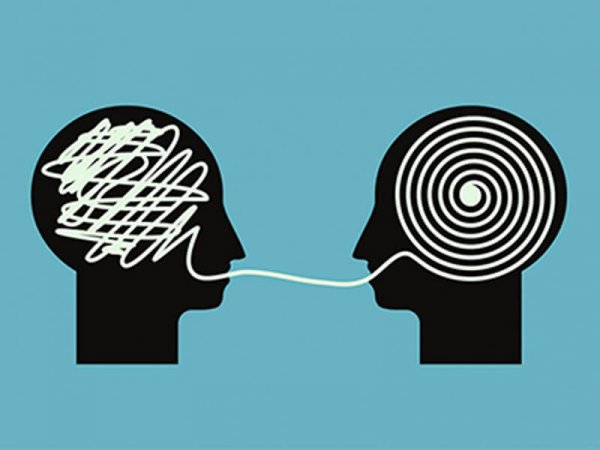7 Techniques for Processing Your Emotions


Written and verified by the psychologist Valeria Sabater
Learning techniques for processing your emotions means calmly and creatively channeling the day’s stress. Although emotions are part of our life, let’s not forget that we have to know how to regulate them. In fact, it’s the key for to a better life full of opportunities.
Neuropsychologists say we have 6,000 thoughts a day on average. Out of those, 95% of them are the same as the day before. The number is only a little bit smaller for thoughts from the week before.
Learning to think differently and change our attitude towards certain people, ideas, situations, or objects isn’t easy, we know. That’s because no one comes into this world knowing what emotions are and how to control them.
“It isn’t stress that makes us fall, it’s how we respond to stressful events.”
-Wayde Goodall-
We all enter this life crying. That’ll be our only language until someone says “enough.” Someone will tell us how “crying isn’t for big kids.” And that’s what we do.
We let the years go by like that, containing our anger because they told us we’re not supposed to express it like that. But they never told us how we were actually supposed to do it.
Because heroes don’t get angry or afraid. So there aren’t many role models for small children and not-so-small children. Where do they see a good example of processing your emotions?
James Gross, director of the psychophysiology lab at Stanford explains it better. He says you need to know how to apply good techniques for processing your emotions. This is key to preventing illnesses like depression or borderline personality disorder. So, managing our mess of thoughts and negative emotions means health and well-being.

Techniques for Processing Your Emotions
There are many techniques for processing your emotions. But before we start to research and risk getting overwhelmed by the many approaches, dynamics, and proposals the world offers us, we need to be clear about one thing.
Processing your emotions is not one-size-fits-all. We have to do it with our own personal toolbox. Not every tool that works for other people will work for us, and vice versa.
For example, it’s common for a lot of people to start with mindfulness. They’re hoping it will solve most of life’s puzzles on its own. But not everyone learns to meditate. Not everyone finds physiological, mental peace in it.
The best, most advisable thing is to use a multidimensional focus. It’s one where the cognitive and physiological, as well as the behavioral and emotional, point to one goal. That goal is to well-being, peace, and better mental focus.
Now we’ll look at 7 techniques for processing your emotions that are proven to be the most efficient. We recommend that you try all of them and stick with the ones that work best.
1. Situations to Avoid, Situations to Confront
Obviously we can’t always control everything that happens in our daily lives. But there are situations that are indeed under our control. We can avoid them to improve our well-being.
- For example, getting out of the house on time might mean I rush. This makes me get to work in a bad mood. So I should try to get up early to not be in such a hurry.
- Sunday family meals might give me anxiety and put me in tense situations. In this case, the best thing to do is suggest other options. That way I’ll avoid the situation for the sake of my health.
- Plus, there are also things and situations I can’t get out of. For example, I could avoid public speaking at my job or flying on a plane. But all that will do is make the anxiety inside me grow and grow. Sometimes we have to face our fears in order to overcome them.

2. Direct Your Attention Somewhere Else
My coworker is getting more contracts than I am. My neighbor managed to lose weight before I did. This train is going too fast, we’ll definitely crash, there’s only bad news in the papers, something bad is definitely going to happen…
All these thoughts do is stress us out. They feed our fear, lower our self-esteem, and cause us to lose control of our life. We need to learn how to shift our gaze from our immediate surroundings and their complexity. That way we can direct it internally.
Once we spend some time there, inside, taking care of and listening to ourselves, everything will balance out again. This is one of the best techniques for processing your emotions.
3. Improve Your Self-Control by Looking at the Near Future
We know the concept of putting our attention on the here and now, the present, is popular right now. Well, we’re going to suggest something different. Think about your near future. Think about tomorrow or the coming week.
- Sometimes, our present is completely occupied by fear, stress, and frustration.
- Instead, think about what you want out of your near future. “I want to feel good, I want to achieve this, I want this to happen, and to feel more sure of myself.”
If you focus on easy, positive, fulfilling goals for your near future, you’ll find more motivation in the present.
- Use reaffirmation. Remember your strengths and past successes so you can put all your hopes into the near future.
4. Mental Note: Save Your Worries for One Specific Part of the Day
Nietzsche said it once: thoughts come when they want to, not when we’d like them to. It’s the same with worries. They’re like ravens that perch on the power lines of our fears and anxiety. They’re there to make them worse, to turn off our optimism and potential and leave us in the dark.
Don’t let them. Every time a worry appears in the “inbox” of your mind, put it off. Leave it for later and pick a time in the day when you’re calm and relaxed. Then, at that time you can reflect on and find solutions for your problems.

5. Question and Answer: What’s the Worst that Could Happen?
It happens to all of us. Sometimes we obsess over things and bang our heads against the wall, unable to find a way out.
They’re thoughts like “They’re going to fire me;” “My boyfriend doesn’t pay attention to me anymore;” “I won’t save enough to pay off that debt…” They trap us in a pointless maze, an exhausting spiral.
Instead of feeding these thoughts, let’s learn how to go a bit farther. Let’s ask ourselves what might happen if the thing we fear did happen. But, let’s do it the right way, adding in a solution:
- “If they fire me, I might finally decide to pursue that project.”
- “If my boyfriend doesn’t pay any attention to me, I’ll ask him what’s wrong. Then if our relationship doesn’t work anymore, I’ll have to accept it, deal with the pain, and move forward.”
- “If I can’t pay off my debt, I’ll have to sell this or that, or ask my family for help.”
6. Meditation as a Way to Relax the Mind and Body
Meditation is one of the most effective techniques for processing your emotions. But to make this strategy fruitful, we have to practice it often. We won’t see results in the first week, and maybe not even in the first month.
But if we practice it regularly, it will definitely show results. The key to seeing them is to be patient and consistent.
Meditation is effective for a lot of things. It can help you deal with intrusive thoughts, reduce stress, improve your attention, and help with daily anxiety.
7. Find Your Escape Route, Your Self-Expression
There are people who find their refuge and self-expression through writing. Maybe you draw or paint mandalas as techniques for processing your emotions. Some people go running, some need silence or nature. Then there are those who get better by getting a coffee with friends, reading books, listening to music, walking their dog, or finding a precious moment alone.
The best techniques for processing your emotions don’t always come from books. Sometimes we find them on our own. Oftentimes, when we least expect it we find that activity that helps us find peace with the world and ourselves.
It’s a space where we get to know ourselves again to find the root of our problems. They’re refuges of peace and satisfaction where our courage will find a home.

So let’s find a way to express ourselves and feel better about ourselves. Let’s dedicate quality time to it and apply some of the strategies here for the sake of our health. Any effort we make will be worth it.
Bibliographic References
Gross, J. J. (2001). Emotion regulation in adulthood: Timing is everything. Current Directions in Psychological Science, 10, 214-219. DOI: 10.1111/1467-8721.00152.
Gross, J. J., & Jazaieri, H. (2014). Emotion, emotion regulation, and psychopathology: An affective science perspective. Clinical Psychological Science.
Goleman, Daniel (1995). Emotional Intelligence. Bantam Books.
Bradberry, Travis. Greaves, Jean (2009). Emotional Intelligence 2.0. Talent Smart.
R.Covey Stephen (1988). The 7 Habits of Highly Effective People. Free Press.
This text is provided for informational purposes only and does not replace consultation with a professional. If in doubt, consult your specialist.








